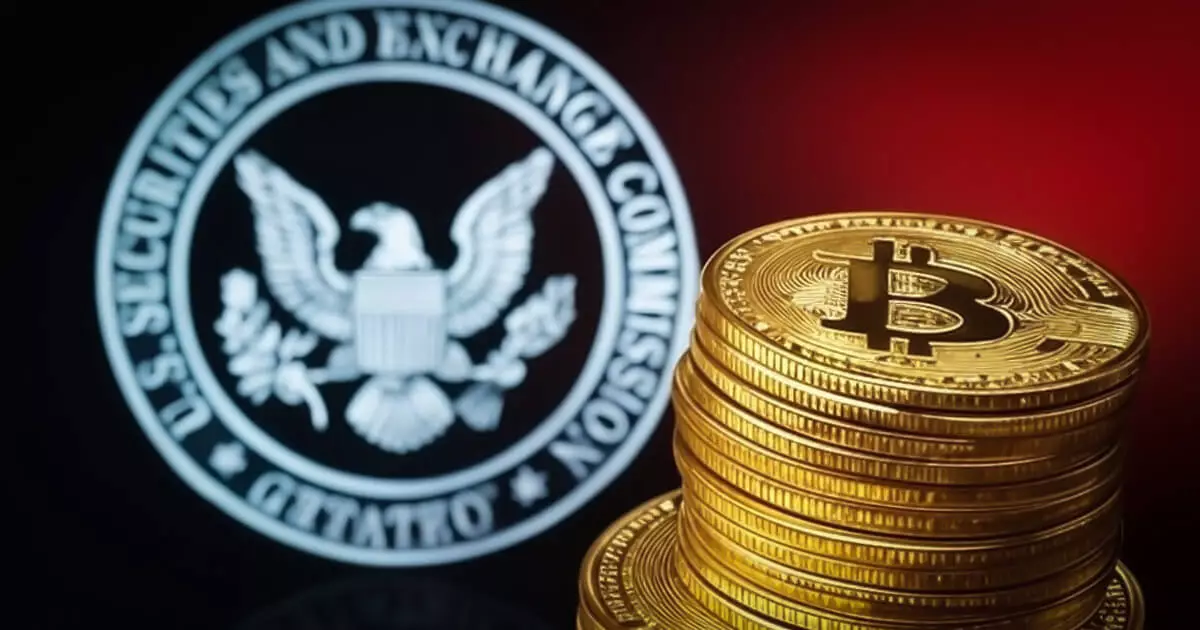The landscape of cryptocurrency regulation in the United States has historically been shadowed by uncertainty and reactive enforcement. However, a significant shift appears to be on the horizon with the recent announcement by the Securities and Exchange Commission (SEC). On January 21, 2023, the SEC unveiled the establishment of a specialized crypto task force, set to be championed by Commissioner Hester Peirce, a notable advocate for innovation in the blockchain and crypto sectors known colloquially as “Crypto Mom.” This initiative aims to construct a robust regulatory framework that could potentially transform the relationship between regulatory bodies and the burgeoning crypto market.
The arrival of the crypto task force represents a pivotal moment in the SEC’s approach to oversight. Traditionally, the SEC has utilized enforcement actions as the predominant means of regulation, leading to criticisms about the method’s retroactive and uncoordinated nature. Industry experts argue that this reactive strategy fosters a climate of uncertainty, stifling innovation and discouraging compliance among market players. By focusing on enforcement as a primary tool, the SEC created ambiguous legal landscapes that hindered constructive dialogue between regulators and the crypto industry.
With the formation of the crypto task force, the SEC is signaling a commitment to clarity and collaboration over confrontation. The task force aims not merely to enforce laws but to define clear regulatory boundaries that delineate acceptable practices within the crypto space. This proactive approach aspires to establish practical registration processes and comprehensive disclosure frameworks, intending to safeguard investor interests while accommodating market participants’ needs.
Acting Chairman Mark Uyeda emphasized the importance of collaboration in the task force’s mission, highlighting a shift toward coordinated efforts with various federal agencies, such as the Commodity Futures Trading Commission (CFTC), as well as state regulators and international counterparts. This cooperative model is designed to harmonize U.S. regulations with global standards, addressing the intricate challenges that the cryptocurrency industry presents.
The task force’s collaborative spirit is pivotal as the complexities of digital asset regulation require diverse input. In her remarks, Commissioner Peirce noted that the success of this initiative hinges on engagement with a wide range of stakeholders, including investors, industry participants, and academics. By fostering an inclusive dialogue, the task force endeavors to cultivate a regulatory environment that is both fair and conducive to innovation.
The Role of Legislative Guidance
As the SEC moves forward, the task force will also play a critical role in providing technical assistance to Congress concerning legislative updates that govern digital assets. This involvement signals an acknowledgment that regulatory frameworks must evolve as the market spirals toward further complexity. The SEC’s aim to offer input during legislative processes emphasizes a commitment to future-proofing regulations that account for anticipated advancements within the crypto realm.
Moreover, as the legal landscape surrounding cryptocurrencies continues to be scrutinized, updates from the SEC may guide lawmakers as they seek to establish comprehensive regulations that balance innovation with investor protection. Such a legislative framework could be vital for promoting a more welcoming environment for both traditional investors and crypto enthusiasts.
Despite initial skepticism surrounding the Biden administration’s stance on crypto, recent nominations by President Donald Trump hint at a possible alignment with pro-crypto sentiment. Key nominations, including that of Paul Atkins as the SEC chair and David Sacks as “crypto czar,” signal a potential shift toward a more supportive regulatory environment. The appointments of Caroline Pham and Mark Uyeda to leading roles within the CFTC and SEC respectively, reflect a broader regime that recognizes the significance of embracing innovation arising from the digital asset sector.
As the regulatory landscape evolves, these efforts will likely influence the way cryptocurrency is perceived and treated within the financial ecosystem. The SEC’s proactive approach, fortified by executive support, could pave the way for increased institutional investment, ultimately leading to more robust market growth.
The formation of the SEC’s crypto task force heralds a significant evolution in the regulatory landscape for cryptocurrency in the United States. By emphasizing clarity, collaboration, and proactive engagement with stakeholders, the SEC aims to cultivate a regulatory environment that not only protects investors but also encourages innovation. As developments unfold, the attention of the crypto community will be steadfast on how effectively the task force navigates the complexities of this rapidly evolving space, and whether its efforts will be sufficient to foster a thriving digital asset economy.
















Leave a Reply